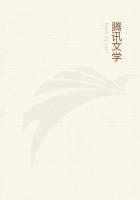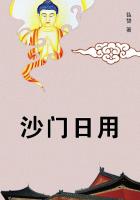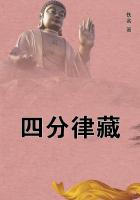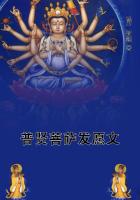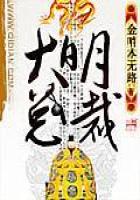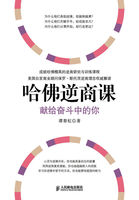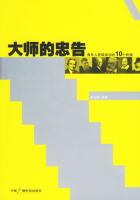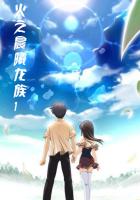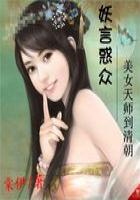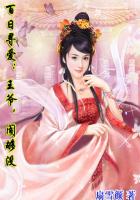Something without a name; compassion, sorrow, old tenderness, mistaken gratitude, habit: none of these, and yet all of them; smote upon Tom's gentle heart at parting. There was no such soul as Pecksniff's in that carcase; and yet, though his speaking out had not involved the compromise of one he loved, he couldn't have denounced the very shape and figure of the man. Not even then.
`I will not say,' cried Mr. Pecksniff, shedding tears, `what a blow this is. I will not say how much it tries me; how it works upon my nature; how it grates upon my feelings. I do not care for that. I can endure as well as another man. But what I have to hope, and what you have to hope, Mr. Pinch (otherwise a great responsibility rests upon you), is, that this deception may not alter my ideas of humanity; that it may not impair my freshness, or contract, if I may use the expression, my Pinions. I hope it will not; I don't think it will. It may be a comfort to you, if not now, at some future time, to know that I shall endeavour not to think the worse of my fellow-creatures in general, for what has passed between us.
Farewell!'
Tom had meant to spare him one little puncturation with a lancet, which he had it in his power to administer, but he changed his mind on hearing this, and said:
`I think you left something in the church, sir.'
`Thank you, Mr. Pinch,' said Pecksniff. `I am not aware that I did.'
`This is your double eye-glass, I believe?' said Tom.
`Oh!' cried Pecksniff, with some degree of confusion. `I am obliged to you. Put it down, if you please.'
`I found it,' said Tom, slowly, `when I went to bolt the vestry-window, in the pew.'
So he had. Mr. Pecksniff had taken it off when he was bobbing up and down, lest it should strike against the panelling: and had forgotten it.
Going back to the church with his mind full of having been watched, and wondering very much from what part, Tom's attention was caught by the door of the state pew standing open. Looking into it he found the glass. And thus he knew, and by returning it gave Mr. Pecksniff the information that he knew, where the listener had been; and that instead of overhearing fragments of the conversation, he must have rejoiced in every word of it.
`I am glad he's gone,' said Martin, drawing a long breath when Tom had left the room.
`It is a relief,' assented Mr. Pecksniff. `It is a great relief.
But having discharged--I hope with tolerable firmness--the duty which I owed to society, I will now, my dear sir, if you will give me leave, retire to shed a few tears in the back garden, as an humble individual.'
Tom went up-stairs: cleared his shelf of books: packed them up with his music and an old fiddle in his trunk; got out his clothes (they were not so many that they made his head ache); put them on the top of his books; and went into the workroom for his case of instruments. There was a ragged stool there, with the horsehair all sticking out of the top like a wig: a very Beast of a stool in itself: on which he had taken up his daily seat, year after year, during the whole period of his service. They had grown older and shabbier in company. Pupils had served their time; seasons had come and gone. Tom and the worn-out stool had held together through it all. That part of the room was traditionally called `Tom's Corner.' It had been assigned to him at first because of its being situated in a strong draught, and a great way from the fire; and he had occupied it ever since.
There were portraits of him on the walls, with all his weak points monstrously portrayed. Diabolical sentiments, foreign to his character, were represented as issuing from his mouth in fat balloons. Every pupil had added something, even unto fancy portraits of his father with one eye, and of his mother with a disproportionate nose, and especially of his sister; who always being presented as extremely beautiful, made full amends to Tom for any other joke. Under less uncommon circumstances, it would have cut Tom to the heart to leave these things and think that he saw them for the last time; but it didn't now. There was no Pecksniff; there never had been a Pecksniff; and all his other griefs were swallowed up in that.
So, when he returned into the bedroom, and, having fastened his box and a carpet-bag, put on his walking gaiters, and his great-coat, and his hat, and taken his stick in his hand, looked round it for the last time.
Early on summer mornings, and by the light of private candle-ends on winter nights, he had read himself half blind in this same room. He had tried in this same room to learn the fiddle under the bedclothes, but yielding to objections from the other pupils, had reluctantly abandoned the design.
At any other time he would have parted from it with a pang, thinking of all he had learned there, of the many hours he had passed there; for the love of his very dreams. But there was no Pecksniff; there never had been a Pecksniff, and the unreality of Pecksniff extended itself to the chamber, in which, sitting on one particular bed, the thing supposed to be that Great Abstraction had often preached morality with such effect that Tom had felt a moisture in his eyes, while hanging breathless on the words.
The man engaged to bear his box -- Tom knew him well; a Dragon man -- came stamping up the stairs, and made a roughish bow to Tom (to whom in common times he would have nodded with a grin), as though he were aware of what had happened, and wished him to perceive it made no difference to him. It was clumsily done; he was a mere waterer of horses; but Tom liked the man for it, and felt it more than going away.
Tom would have helped him with the box, but he made no more of it, though it was a heavy one, than an elephant would have made of a castle: just swinging it on his back and bowling down-stairs as if, being naturally a heavy sort of fellow, he could carry a box infinitely better than he could go alone. Tom took the carpet-bag, and went down-stairs along with him. At the outer door stood Jane, crying with all her might: and on the steps was Mrs. Lupin, sobbing bitterly, and putting out her hand for Tom to shake.

